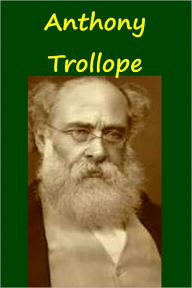• Table of contents with working links to chapters is included
• The book has been corrected for spelling and grammatical errors
•
It has been the ambition of my literary life to write a book about the United States, and I had made up my mind to visit the country with this object before the intestine troubles of the United States government had commenced. I have not allowed the division among the States and the breaking out of civil war to interfere with my intention; but I should not purposely have chosen this period either for my book or for my visit. I say so much, in order that it may not be supposed that it is my special purpose to write an account of the struggle as far as it has yet been carried. My wish is to describe, as well as I can, the present social and political state of the country. This I should have attempted, with more personal satisfaction in the work, had there been no disruption between the North and South; but I have not allowed that disruption to deter me from an object which, if it were delayed, might probably never be carried out. I am therefore forced to take the subject in its present condition, and being so forced I must write of the war, of the causes which have led to it, and of its probable termination. But I wish it to be understood that it was not my selected task to do so, and is not now my primary object.
Thirty years ago my mother wrote a book about the Americans, to which I believe I may allude as a well-known and successful work without being guilty of any undue family conceit. That was essentially a woman's book. She saw with a woman's keen eye, and described with a woman's light but graphic pen, the social defects and absurdities which our near relatives had adopted into their domestic life. All that she told was worth the telling, and the telling, if done successfully, was sure to produce a good result. I am satisfied that it did so. But she did not regard it as a part of her work to dilate on the nature and operation of those political arrangements which had produced the social absurdities which she saw, or to explain that though such absurdities were the natural result of those arrangements in their newness, the defects would certainly pass away, while the political arrangements, if good, would remain. Such a work is fitter for a man than for a woman, I am very far from thinking that it is a task which I can perform with satisfaction either to myself or to others. It is a work which some man will do who has earned a right by education, study, and success to rank himself among the political sages of his age. But I may perhaps be able to add something to the familiarity of Englishmen with Americans. The writings which have been most popular in England on the subject of the United States have hitherto dealt chiefly with social details; and though in most cases true and useful, have created laughter on one side of the Atlantic, and soreness on the other. If I could do anything to mitigate the soreness, if I could in any small degree add to the good feeling which should exist between two nations which ought to love each other so well, and which do hang upon each other so constantly, I should think that I had cause to be proud of my work.
But it is very hard to write about any country a book that does not represent the country described in a more or less ridiculous point of view. It is hard at least to do so in such a book as I must write. A de Tocqueville may do it. It may be done by any philosophico-political or politico-statistical, or statistico- scientific writer; but it can hardly be done by a man who professes to use a light pen, and to manufacture his article for the use of general readers. Such a writer may tell all that he sees of the beautiful; but he must also tell, if not all that he sees of the ludicrous, at any rate the most piquant part of it. How to do this without being offensive is the problem which a man with such a task before him has to solve. His first duty is owed to his readers, and consists mainly in this: that he shall tell the truth, and shall so tell that truth that what he has written may be readable. But a second duty is due to those of whom he writes; and he does not perform that duty well if he gives offense to those as to whom, on the summing up of the whole evidence for and against them in his own mind, he intends to give a favorable verdict. There are of course those against whom a writer does not intend to give a favorable verdict; people and places whom he desires to describe, on the peril of his own judgment, as bad, ill educated, ugly, and odious. In such cases his course is straightforward enough. His judgment may be in great peril, but his volume or chapter will be easily written. Ridicule and censure run glibly from the pen, and form themselves into sharp paragraphs which are pleasant to the reader.




